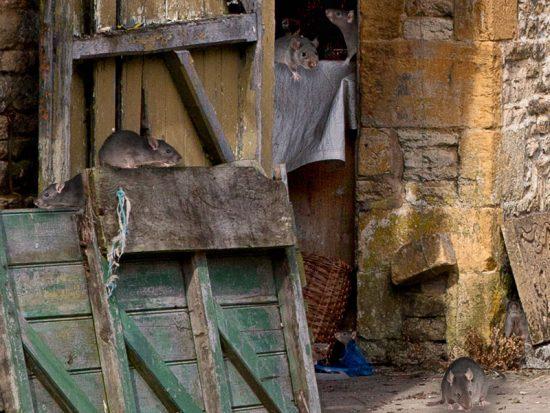Dealing with rodents in the summer
As we draw closer to the end of summer, farmers are drawing closer to the end of harvest. Whilst cutting down fields of crops they are not only removing their produce, they are also removing habitats where rodents have been comfortably living and feeding for months in the warm weather. Once the shelter and food has disappeared the rodents that have been residing there will begin to migrate in search of a new home. This new home may very well end up being your home or garden if you don’t take the right precautions.
There are various ways you can deter these unwanted guests. Firstly, denying them shelter in your garden can help to rodent proof your property. If you have any sheds or outbuildings which have gaps underneath you can use wire mesh to prevent any ingress, be wary that mice can squeeze through a gap the size of a biro pen, so you would need to use 5mm mesh in order to prevent them entering. Cleaning up any unnecessary items and clutter from the garden will remove any enticing hiding spaces which rodents may take advantage of in order to make a nest. A huge attractant for rodents to an area is availability of food. One of the main sources of food for rodents are seeds and scraps that are provided to feed birds. Throwing any food waste into the garden for birds often ends up being eaten by rodents. The same goes for bird feeders as they can very easily scale these and steal all the food that was intended for birds. This can be fairly easily prevented by ensuring that no food is left out on the floor and attaching a baffle to any bird feeders – this is a conical structure which prevents rodents from climbing the pole. Ensure any bird seed for feeders or chickens is kept securely in metal bins as rats have been known to chew through plastic bins with ease. Compost heaps are another huge attractant, the warmth and food they provide are ideal for a rodent looking to nest so ensure that all composting is done in a secure lidded bin.
The gestation period of mice and rats is only 21 days, so they don’t need very long before there are lots more of them, especially when each litter can contain up to 12 pups. Female rodents can reach sexual maturity in a minimum of 4 weeks, and if left unchecked a couple of unwanted visitors can turn into a very large problem!
If allowed to thrive in your garden it won’t take very long until they will attempt to find their way into your house. Alongside following the above methods to help exclude rodents from the area, using bait, in conjunction, is a great idea to ensure a rodent free environment and prevent them entering your home. Using securely fixed bait boxes filled with block bait around the exterior of your home will provide a good level of monitoring and control. The Ruby blocks are best for monitoring rodent activity as any feeding with be evident in the form of tooth marks, and they also can be secured safely inside the bait box to prevent them being pulled out into the environment.
In the summer it may be tempting to leave doors open to allow the house to cool down, but this can provide rodents with easy access to your home. Keeping doors shut when unattended is recommended to avoid any ingress, along with ensuring the exterior of your property is free from any holes that mice or rats could attempt to squeeze themselves through. If you do find that rodents have entered your property there are a variety of bait formulations that you can use to achieve control.
We offer both professional and non-professional bait options to allow everybody the option to treat rodent issues themselves. In order to purchase professional strength rodenticides you require certification in order to do so. We provide e-learning courses which can provide you this certification to purchase these products and provides valuable information that allows you to more effectively understand rodent behaviour and in turn be better prepared to deal with any undesirable future visits.





